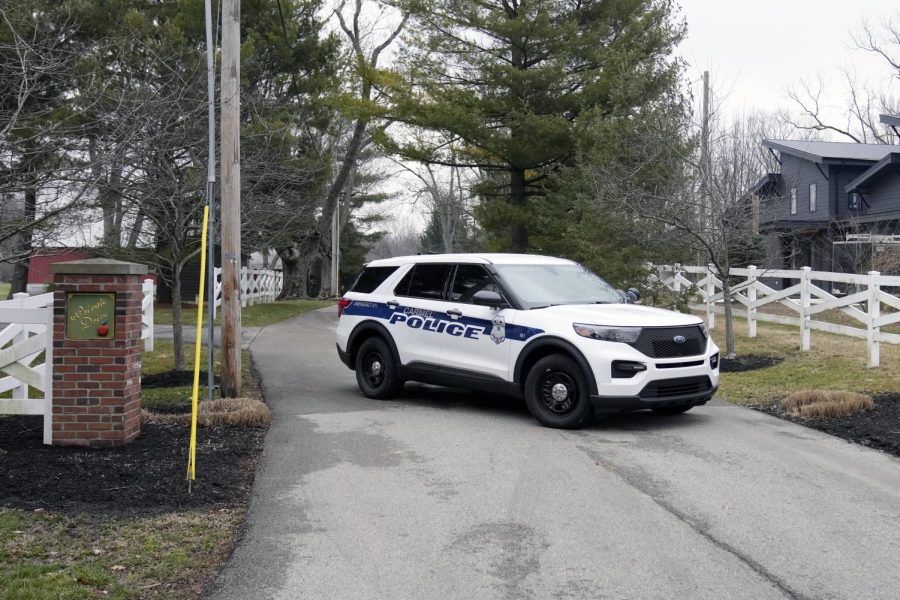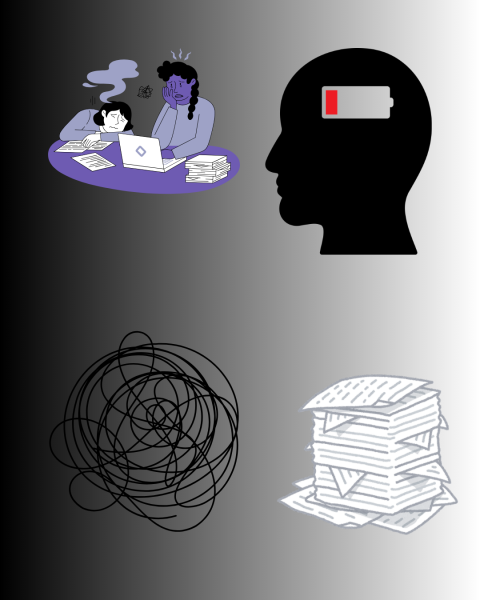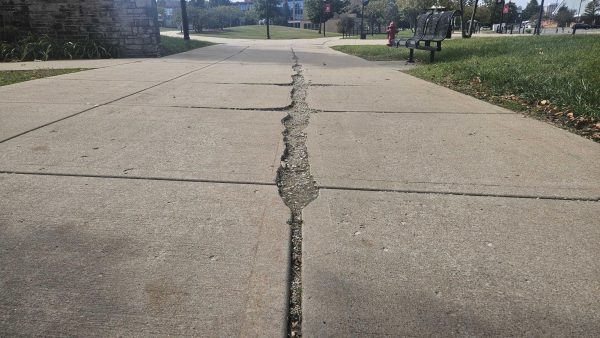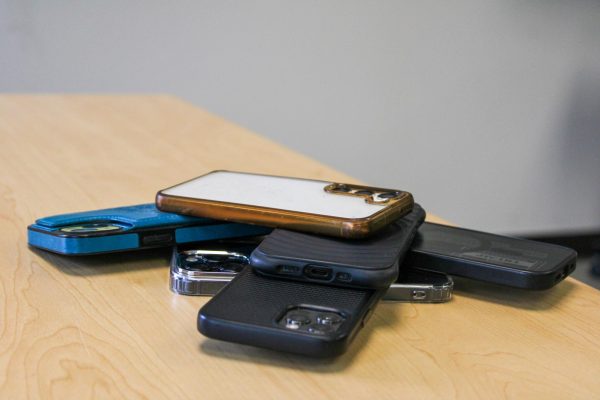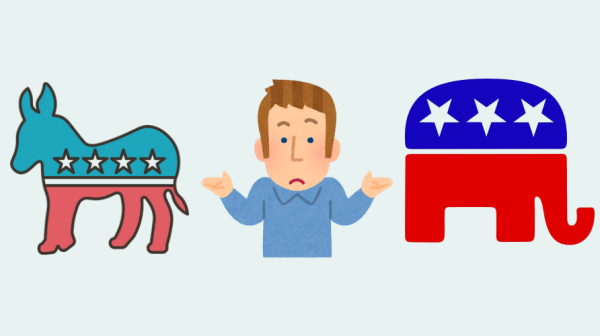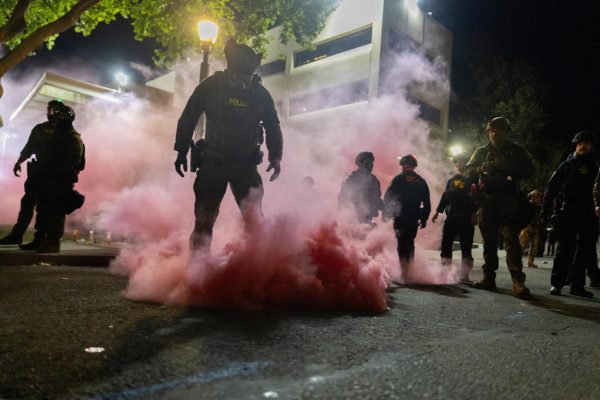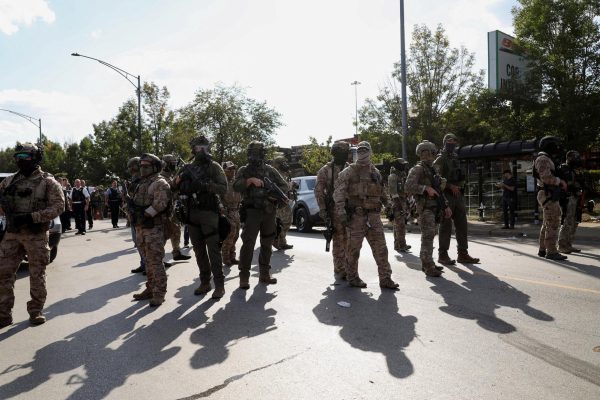Classified documents don’t feel classified
(AP Photo/Michael Conroy
Police secure the entrance to the neighborhood of former Vice President Mike Pence’s Indiana home, Friday, Feb. 10, 2023 in Carmel, Ind. The FBI is searching former Vice President Mike Pence’s Indiana home as part of a classified records probe. That’s according to two people familiar with the search who were not authorized to discuss it and spoke on condition of anonymity. (AP Photo/Michael Conroy)
With President Joe Biden currently under investigation by the FBI, the public is beginning to wonder why the mishandling of classified documents has become a recurring story. The government, it seems, may require improved security measures.
The investigation first began in Nov. 2022 and the FBI has since located and seized multiple classified documents from Biden’s personal home in Wilmington, Delaware. The president has cooperated fully with the investigation and claimed the documents’ misplacement to be an accident.
This investigation is an uncomfortable development of late, but hardly a shocking one. The nation, after all, is already scarred from its previous administration.
Former President Donald Trump remains under FBI investigation for taking thousands of classified documents with him upon leaving in 2020.
Trump changed his mind several times about the state of the documents: claiming first that they were not present and eventually that they were his personal property. They are not, which one will understand when recalling the existence of governmental law and the Presidential Records Act of 1978.
Hundreds of classified records were eventually withdrawn from Trump’s Mar-a-Lago residence, and the investigation into his criminality continues.
While Trump’s case feels the most disturbing, he was not the first president in American history to inappropriately possess classified documents.
To name a few others: President Jimmy Carter re-discovered presidential records at his home following the end of his term and President Ronald Reagan’s administration (which directly followed Carter’s) was also found to be in possession of some of the same documents.
Furthermore, President Richard Nixon and the infamous Watergate scandal of 1972, earlier served as the incentive for the creation of the Presidential Records Act.
While the individual cases and even the urgency of the classified documents themselves are far from equal, the idea that we as the public have such little control is unsettling.
For instance, some of these incidents may translate simply as the result of human error. The cases of officials such as Biden and Former Vice President Mike Pence – who willingly cooperated with the FBI in returning the documents found in their possession – seem to suggest so. However, even simple human error can feel disconcerting when it’s regarding national secrets. Furthermore, the longer such error is kept from the public, such as in Biden’s case, the more public unease about governmental dishonesty increases.
In an interview with NPR last month, Matthew Connelly, a professor at Columbia University and author of the soon-to-be-released “The Declassification Engine,” explained the problem is not exclusively about security.
“The real problem is that the American people can’t hold their government to account because even though there are millions and millions of new secrets being created every year, there are only a couple thousand people – 2,000 in the U.S. government – whose full-time job it is to review records and decide what can be released,” Connelly said. “What we really need is for Congress and the courts to step up and do their jobs. They’re the only ones who can actually bring this system under control.”
It’s time to re-think the security of our nation’s classified documents. But better yet, let us elect leaders who, at the very least, can admit their mistakes with grace and resolve them.



